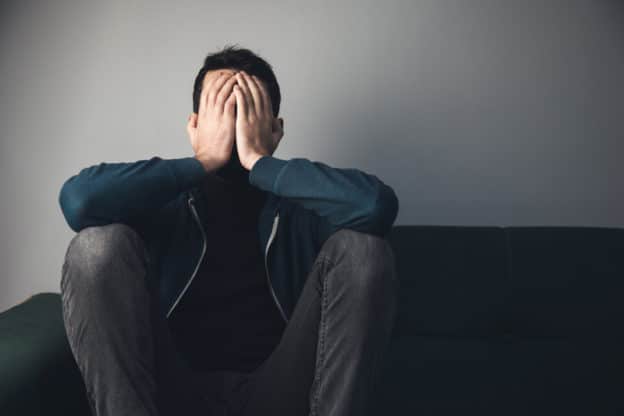There are many substances that people abuse. One common, but illegal one is heroin. Heroin is highly addictive, though. This is partly because of how strong heroin is. While many people often worry about the short-term effects of heroin, the long-term effects of heroin use are what really ruins people’s lives. To avoid suffering from as many of the short and long-term effects of heroin as possible, individuals that are addicted to heroin should receive heroin detox and heroin addiction treatment immediately.
What is Heroin?
Heroin is an illegal opioid. Thus, it shouldn’t be surprising that it’s so addictive. Heroin is derived from morphine, which is a natural substance from the seed pod of different opium poppy plants. Visually, heroin usually comes in the form of a white or brown powder.
Why People Use Heroin

People like to use heroin because of the euphoric feeling that it gives them. Unfortunately, the euphoric sensations of heroin are often followed by numerous negative short and long-term health effects. By the time people start to feel the negative effects of heroin use though, they are likely already addicted to the substance. This is because it often only takes one or two uses of heroin to develop a heroin addiction.
Another common reason why people start to use heroin is that they are already addicted to the legal form of opioids, aka prescription painkillers. This is because they can no longer get more painkiller medications. Thus, such people often turn to the illegal form of opioids, which is heroin, to still get that euphoric effect that can numb their pain. Once individuals with opioid addictions also develop an addiction to heroin, it’s imperative that they receive some sort of heroin addiction treatment in their addiction treatment programs if they want to stop being addicted and become sober.
How People Use Heroin
When people use heroin they usually snort it, sniff it, smoke it, or shoot up heroin in their body’s system through the use of needles. Prior to using heroin, some people will even mix it with other substances, such as crack cocaine, to enhance the drug’s euphoric effect. This is highly dangerous and can easily lead to overdose or even death. To avoid such horrific outcomes, individuals that struggle with heroin use should receive heroin addiction treatment.
Signs of Heroin Abuse
Heroin abuse is sometimes hard to detect or distinguish from abuse of other substances. That’s why it’s important to know the signs of heroin abuse.
If you suspect that someone is abusing heroin, some of the signs that you should look out for include:
- If the person starts stealing
- The individual is isolating him or herself from others
- If the person is always itching him or herself
- Having flushed skin
- If the person suffers from constipation
- Constantly getting into legal trouble
- Having an upset stomach
- Frequently getting in trouble at work or school
- Using slang terms to refer to heroin
- Getting a new set of friends while withdrawing from preexisting family and friends
- Exhibiting mood swings and other behavioral changes
- Having track marks on the arms or other parts of the body
The Long Term Effects of Heroin on the Body and Brain
Like all opioids, heroin binds to the opioid receptors in the brain. This causes people to experience feelings of euphoria. Unfortunately, it doesn’t take long before heroin starts causing chemical changes in the brain that can lead to addiction. Thus, most people that use heroin develop a heroin addiction. Once that happens, the short and long term effects of heroin on the brain and body only get worse.
For example, over time, heroin can change the whole brain’s chemistry in a way that causes the body to start to experience severe physical ailments. This includes diseases of one’s organs. That’s why it’s so important to receive heroin addiction treatment while one is still experiencing the short term effects of heroin rather than waiting for the long term effects of heroin on the body and brain.
Short Term Effects of Heroin on the Body

While people that use heroin immediately feel its euphoric effects, it doesn’t take long before some negative short-term effects set in. Unfortunately, because of how addictive heroin is, by the time the negative short term effects of heroin kick in, people are already addicted to the substance.
The short term effects of heroin though include:
- Dry mouth
- Having warm, flushed skin
- One’s arms and legs feeling heavy
- Nausea
- Vomiting
- Severe itching
- Poor mental function
- Going in and out of consciousness
- Slowed heart rate
- Slowed breathing
- Increased body temperature
- Overdose
Long Term Effects of Heroin on the Body
As bad as the short-term effects of heroin are, the long term effects of heroin on the body are worse. In fact, many of the long term effects of heroin use are life-threatening.
Examples of the long term effects of heroin on the body include:
- Insomnia
- Collapsed veins where heroin is injected
- Damaged tissue inside of the nose
- Infection of heart valves and lining
- Abscesses
- Constipation
- Stomach cramping
- Liver disease
- Kidney disease
- Lung complications
- Pneumonia
- Depression
- Antisocial personality disorder
- Sexual dysfunction in men
- Irregular menstrual cycles in women
- Contraction of hepatitis or HIV due to shooting up heroin with shared needles
- Malnutrition
- Issues with one’s skin
- Damaged teeth
- Inflammed gums
- Sexual dysfunction
- Weakened immune system
- Cold sweats
- Blood infections
- Heart infections
Heroin Detox
The first step in overcoming heroin addiction is to attend heroin detox. Heroin detox is the process of ridding the body of all of the heroin and any other toxic substance within it. Heroin detox is necessary prior to heroin treatment because it’s best if addiction treatment patients are clean and sober while they learn to cope with their addiction triggers.
When attending heroin detox, it’s important that the detox is at a medical detox facility. This is because medical detox facilities contain doctors and medical staff that monitor every step in the detox process. Thus, if a heroin detox patient contains severe withdrawal symptoms, the doctors and medical staff at a medical detox facility can provide that patient with the necessary prescription withdrawal medications to help him or her safely manage them.
Heroin Addiction Treatment

Once individuals that are suffering from heroin addiction complete heroin detox, the next step is heroin treatment. Heroin addiction treatment contains different forms of addiction therapies that will teach those recovering from heroin addiction what their triggers are for addiction and healthy coping methods. That way, once the heroin treatment patients complete rehab, they are able to function in the real world successfully as sober individuals.
There are various different forms of heroin addiction treatment. The type of addiction treatment program that a person attends is dependent on the severity of his or her addiction. For example, individuals with severe heroin addictions will attend inpatient or residential heroin treatment while individuals with addictions that aren’t necessarily severe can attend one of the outpatient forms of heroin addiction treatment.
Inpatient Heroin Addiction Treatment
An inpatient form of heroin treatment is a heroin addiction treatment program in which the patients live at the rehab facility that they’re receiving care at. This is so that the heroin addiction treatment patients can receive 24/7 care and monitoring as their addictions are severe.
Residential Heroin Addiction Treatment
Inpatient forms of addiction treatment are highly structured. Individuals that want to attend an inpatient form of heroin treatment that isn’t as highly structured can attend residential heroin addiction treatment. Residential treatment is just like standard inpatient treatment except more casual. Thus, residential treatment patients get more free time to themselves and more time to take part in holistic forms of addiction treatment.
Partial Hospitalization Program Heroin Addiction Treatment
Individuals with moderate to severe heroin addictions that don’t want to live in rehab facilities 24/7 while receiving care can attend partial hospitalization program (PHP) treatment. PHP heroin addiction treatment requires patients to attend rehab for five to eight hours a day, five to seven days a week. When not attending rehab, PHP patients can live in their own homes.
Not having to live in a rehab facility while receiving PHP treatment makes this program outpatient. Partial hospitalization program treatment is the most intense form of outpatient treatment.
Intensive Outpatient Program Heroin Addiction Treatment
The second most intense form of outpatient treatment is intensive outpatient program (IOP) treatment. Individuals that attend an intensive outpatient program (IOP) heroin treatment are required to attend rehab for approximately a few hours a day, a few days a week. When not in rehab, IOP heroin treatment patients can live in their own homes and tend to their normal life responsibilities. IOP forms of addiction treatment are for individuals with moderate addictions.
Outpatient Program Heroin Treatment
The least intensive form of outpatient treatment is standard outpatient program (OP) treatment. This is because OP treatment only requires its patients to attend rehab for approximately a couple of hours a day, a couple of days a week. Outside of that time, OP patients can live in their own homes and tend to their normal lives.
Receive Heroin Addiction Treatment At Grace Land Recovery and Prevent the Long-Term Effects of Heroin Abuse
Individuals with heroin addictions that want to receive the best forms of PHP, IOP, or OP heroin treatment should do so at Grace Land Recovery. This is because we here at Grace Land Recovery offer a wide variety of addiction treatment programs, therapies, and services that will treat your individual needs. That way you can either prevent the long-term effects of heroin abuse from occurring or learn how to properly manage the long-term effects of heroin abuse so that they don’t ruin your life.
Some of the top forms of addiction therapy that we offer here at Grace Land Recovery include cognitive-behavioral therapy, experiential therapy, and rational emotive therapy. We also offer clinical groups and treatments that focus on everything from mental health to anger management, to trauma, to relapse prevention, nutrition, emotion regulation, spirituality, and even HIV education. Thus, you can rest assured that you’ll receive the care that you need at our treatment center.
To learn more about the addiction treatment programs, therapies, and services that we offer here at Grace Land Recovery or to start taking advantage of our heroin addiction treatment programs, contact us anytime. Our phone lines are open 24/7.

